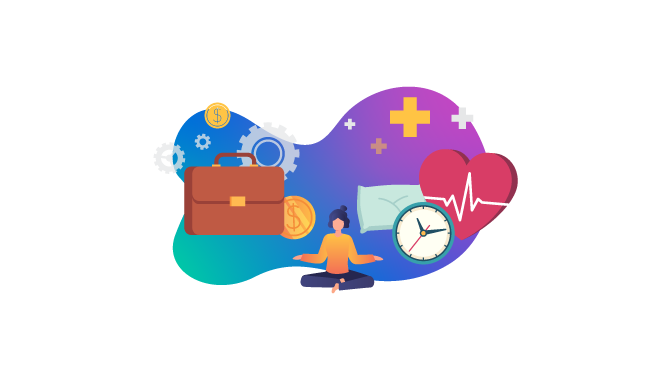19-10-2021
Work-life balance: how to identify 5 positive and negative signs in your daily life
by Joana Lemos, Talent Engagement Specialist at Xpand IT
Finding the “balance” between work and personal life is not a recent issue in our society. It is a fact that the tension between these two was conditioned by the pandemic; with the advantages and/or disadvantages of remote work and people’s concern about their work’s nature, its meaning or purpose, and how this might affect its quality of life.
The truth is that today’s offices are physically in our living rooms, bedrooms or kitchens. It is important to reflect on how this transition took place and how work fits into our homes, but above all in our lives. As we reflect on this, it is inevitable to ask what are the signs for the transition to have been successful or not, and what should we do if something isn’t well adjusted.
This article aims to raise awareness of these signs and their challenges. In a daily reality surrounded by technology, where we can feel that our day-to-day is often on autopilot, which sometimes does not allow us to be as productive as we wanted to be, and where we are currently with the feeling that our personal life is on standby.
Before exploring these signs, we have to understand two different concepts and reflect on some aspects of our lives: work-life balance and work-life integration.
What you might consider balance may surprise you
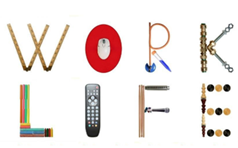
Some critics say that the term work-life balance creates an artificial division between work and personal life as if work were not an integral part of each of our lives. Some simply say that the balance between those two does not exist, and others that we dictate what this form of balance is and how it is.
Anyways, another expression that has become very popular has emerged, as an evolution of this famous term: work-life integration. This is seen as a new approach that creates a greater synergy between the areas we define “life” from work, home, family, community to mental/physical health and well-being. This expression allows the employer to understand that perfection does not exist, neither at work nor at home, promoting vulnerability and honesty. Here the most important and necessary thing is the transparency that work and personal life merge into one.
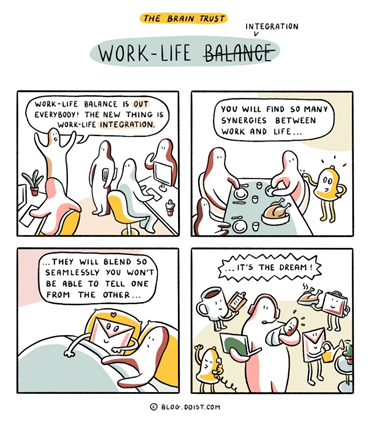
We may believe that if we didn’t have to work — or if we could work for a few hours — we would be happier, but that doesn’t explain how some retirees decide to take part-time jobs to keep themselves busy and some lottery and Euro Million winners just keep working.
Achieving the perfect balance between work and personal life (believing the balance exists or not) isn’t necessarily about when, where and how we work — it’s more about the question “why do we work?”. And that means understanding other aspects that may not be so obvious to us, but that may have arisen from this sudden invasion of the office into our home.
Studies show that work is consistently and positively related to our well-being and is a large part of our identity. If you ask yourself “Who am I?” you are likely to start describing or associating what you are with what you do in your work. In a way, our job can contribute to our well-being, either by providing us with skills, a sense of mission, energy, pleasure or simply by attracting the feeling of effort. Another study reveals that being busy can contribute to our happiness, even when we feel like sitting around doing nothing. That’s why some of us prefer doing “something” in our leisure time. This is food for thought, isn’t it?
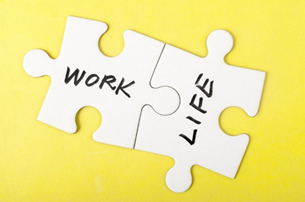
But how do we know what balance is to us, whether personal or professional? How do we manage to understand the positive and negative signs of the Work-life balance? And what impact can these signs have in our lives?
Below are 5 negative signs to watch out for:
- Lack of concern — If you start to feel like you’re falling asleep too late or have constant insomnias this may be one of the first signs of your body warning you that something in your life needs to change. Not to mention the fact that you spend all day sitting in front of your computer and feel that the only time of day you move is when you go to your two favourite rooms in the house (you know which ones they are). In addition, you feel that you find yourself looking at the uber eats app more often than at the inside of your fridge. You need to take care of yourself physically, psychologically, and socially. Stay active, create a walking routine even if it’s just 20 minutes a day, do not skip meals and get a good night’s sleep.
- Your mental health, “where” is it? — Have you started to feel anxious? Do you feel that you are more impulsive and that you are easily irritated? You may even experience tiredness, hopelessness, sudden mood differences, destructive and negative thoughts. We already know the effect stress has on us and our immune system. You need to watch out for constant migraines, memory loss, loss of patience, lack of motivation and energy.
- Shut down mode — You start to feel that nothing you do makes any sense. You start to miss feeling connected with your colleagues, family, friends, and clients. You start to feel like you’re just on autopilot. If doing something for yourself every day is too demanding, try to do something for yourself once a week. If, for example, you’re having trouble catching up with someone you really like to talk to, maybe it’s the right time to use your cell phone. When you’re with that person, just focus on being with them and leave your cell phone in your pocket or backpack. Putting it down on the table while you are talking to someone means that while you are spending time with that person, there is something that can interrupt that moment together at any time and that person will fade into the background. For example, if you receive an email notification (even if it’s not important) at that moment the conversation you were having ends up being interrupted. If it is something urgent you will receive a call, which you will answer and understand what it is and if it is not urgent, ask to call later. Enjoy the experiences and the moment itself. Photography lovers wait hours to take a good photo and then sometimes spend even more hours looking at it and seeing every detail, they don’t decide to publish it on Instagram right away!
- Ill-defined limits — How much do you integrate or separate your work from your personal life? Researcher Ellen Kossek created a survey that helps you understand your limits and upon the result gives some suggestions and improvement strategies; physical, mental or social. Do you remember the previous question of “who am I”? Our tendency is often to say that you are an engineer, a responsible person… but what other identities do you have? Are you a guitar player, sportsman, father, friend? It is important to reinforce who you are beyond your identity at work and to understand what various identities you have and preserve them. Also, what other identities would you like to have? Explore your tastes, experiences and potential future wishes.
- Copy & Paste: once in a while ≠ routine — The feeling that all your days are the same and you are “surrounded” (electronically speaking) by the same people. To reach the end of the day without patience for much more than lying on the couch and ordering food to come home. One day or another it’s OK if you do this but you must be careful not to make it a routine. Most of the time it’s not even related to the tasks or projects you have in your hands; you simply need other stimuli and experiences. If you have a vacation to schedule, it might be a good solution to think about it, use the time to plan your own time, experiences, and rest. Vacation days are to be enjoyed even if you have no place to travel. The “Doing Disease” is real and we have to find strategies to slow down. Gandhi once said “There are more things in life than increasing its speed”, and we know exactly how much our life is limited by time.
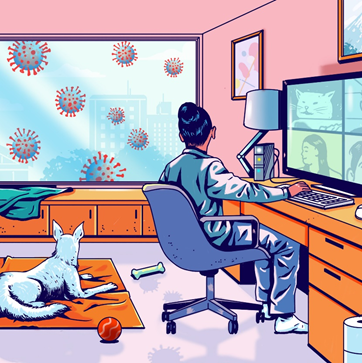
Now that you know what to watch out for, below we expose 5 positive signs in your day-to-day that should be reinforced when they are already a reality, or that you should start applying:
- Disconnect— Can you make it to the end of your workday, turn off your pc and get away from the notifications that may pop up about work? Can you come up with any personal plans you’ve made for the day, whether it’s training, watching Netflix, being with the ones you like, doing some household chores, or just doing nothing at all? Just having the ability to be on the couch listening to music without thinking about anything else during those moments can bring you peace of mind and slow you down from the day’s rhythm. If you can do anything other than work your entire day, you know you’re doing something for yourself.
Here I will ask you a question for you to reflect: Before, when you went to the office every day, did you find it easier to abstract after work on the way home, or do you find it easier now that you work from home? The question remains in the air but think about the strategy you used to abstract yourself.
- Prioritize — Being able to decide that you will only proceed with the second task after completing the first. You might be thinking now “talking is easy”, but if you divide your day into slots dedicated to the tasks you have to do, you’ll realize that you’ll be able to complete both if you dedicate a certain amount of time to each one of them. Multitasking in some situations may not help. You have several tools that can help you organize your time better, from calendars, bullet journal, outlook, or even tools like Jira, Miro, Trello, Todoist, Monday. If you haven’t yet finished your tasks and someone comes along and delegates you another task to do, try to ask these two questions: “is it urgent or important?” or “does it have to be now?” These two phrases will make the difference between a task that has priority and must be done immediately, or if it is important and can wait to be done in the next few days.
- Focus — The word focus must be applied to both work and leisure time. Once you assume you’re going to do something for yourself, make it non-negotiable in your day, no matter what time it is. If the goal is to train during the day, be dressed, have the meal prepared from the day before, the equipment in the right place, it can make a difference. There is something that has also to go with the focus: determination. If you feel that you are losing the will to do this throughout the day, the secret may be to define that it is the first thing you do in your morning.
- Accept that unforeseen events can happen — There will always be situations that we don’t control. For instance, if a family member is sick, you may not be able to be present at a certain meeting. Just as if you have an important deadline to meet, you may not be able to go to dinner with a friend. What is important is not to allow these inevitabilities to become usual. It may be something punctual or it may end up lasting a week, but sooner or later you will be able to adjust your expectations again.
- Ask for help— Recognizing that you need support is already a big step towards success, then you’ll just need the right tools to help you recover. You decide who will be your support: a family member, friend, colleague or even a psychologist, like one of our partners on Team 24.
Considering that the balance exists or not, doubting what is the right term to apply, if it’s “balance”, “integration” or another, we sure have a certainty: we are the ones who must define our own goals and strategies to find what we consider to be reasonable in terms of time against the effort, to dedicate to each area of our life, in personal life or work. Regardless, each one requires dedication, planning, focus and prioritization, something that is essential to help shape our daily lives.
In practice, what we want to achieve is the feeling that we can reconcile everything without having to choose. If you’ve managed to create a routine that you’re proud of and feel happy about, you’ll know you’re on the right track. If you’re still trying, I hope some of these tips will help you find the word, solution or alternative you’re looking for.
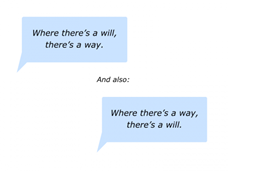
You already know that it may not be associated with words like balance, doing nothing, wanting to do everything, where how and when. It is necessary to have your own will for this conciliation to happen and also the support from the company you work for, in order to exist a focus on promoting personal fulfilment in us. All this without the expectation that everything has to be perfect, as it is through your personal and professional fulfilment that the company will grow too.


